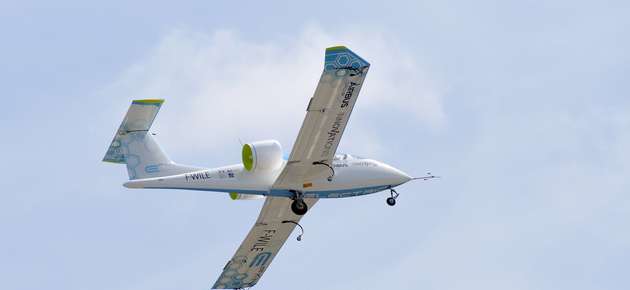Kvarken region's new electric aviation project secured EU funding


– We are involved in exploring the opportunities and impacts of this cross-border cooperation. It is great to be involved in co-operation that builds new development paths for the whole region, says Helka Kalliomäki, assistant professor in regional science at the University of Vaasa.
The FAIR project starts immediately and will continue until the summer 2022. The lead partner of the project is the Kvarken Council. The other project partners are University of Vaasa, Umeå University, BioFuel Region, RISE (Research Institutes of Sweden) and Region Västerbotten.
– As we are now about to start our first electric aviation project, it gives small airports confidence in the future, strengthens the region’s profile within the energy and electricity businesses and binds together a strategic partnership of unique width and variety. Ultimately, it is all about generating good prospects for investments and new jobs for future generations, says Joakim Strand, MP, Chairman of Vaasa City Council and Chairman of the Kvarken Council, in the press release.
– This is the first project that truly engages the entire Kvarken region. There is widespread interest in the topic, which is shown by the broad partnership that we have managed to create, explains Mathias Lindström, Kvarken Council’s director and FAIR project manager.
The project shall develop a method for the early and efficient commercialization of electric-powered regional flights in the Kvarken region.
– The project does not cover any technical solutions or investments. At this stage, we shall produce background material enabling the region to quickly realize the potential of the new technology.
The project’s goal is to create synergy between other electric flight projects with the purpose of together increasing knowledge of the potentials of electric aviation and also of accelerating the implementation of regional electric flights and initiating cross-border innovation processes in relation to these.
The project consists of three main work packages;
The first is to carry out a market analysis and a description of regional effects.
The second is to develop guidelines for measures that must be implemented in the region in order to support an early implementation of electric flights. This also includes suggestions for funding models.
The third is to develop new services, products and business models in an innovation process with the purpose of gaining added value from electric flight technology within the public and private sectors.
– This is an opportunity for us to tie the region even closer together, and we can make this into our region’s new flagship project with the help of our partners, with the purpose of contributing to regional development and service structure, improving the communications as well as boosting the preconditions for business life and tourism and to contributing to the development of innovations in the entire Kvarken region, Lindström adds.
An early implementation of electric flights in the region would address the region’s challenges, such as demographic changes, long distances and inadequate east-west connections as well as the global demand and need to reduce climate and environmental impact. Further, it can provide the region’s small airports the chance to prepare for a new role in the future electric aviation network.